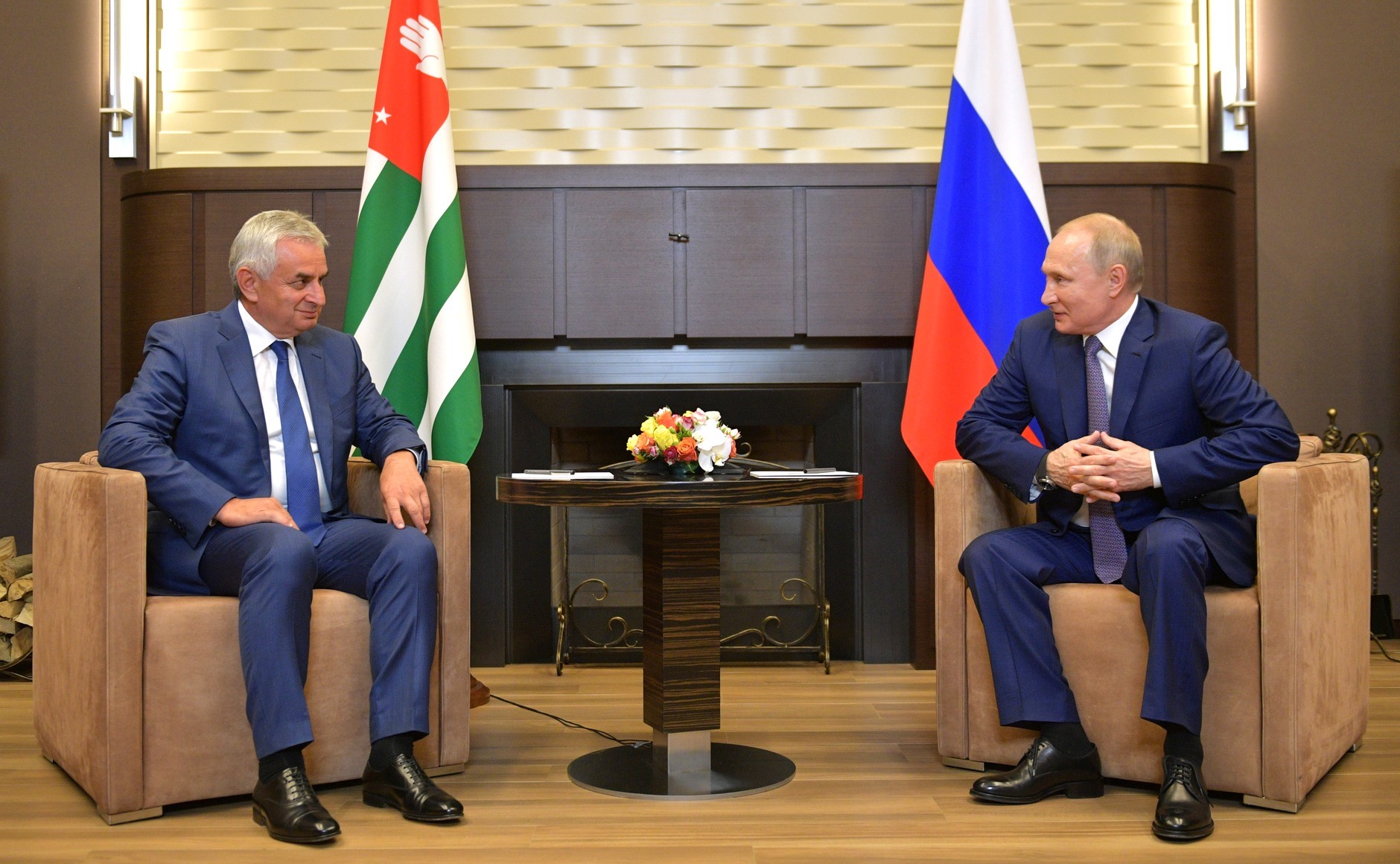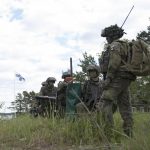RUSSIA MONITOR
Date: 16 September 2019
Putin’s Allied Candidate Wins in Abkhazia Presidential Vote
All significant political factions in the breakaway Georgian region of Abkhazia believe in close cooperation with Moscow in a move that is de facto comparable to a Russian protectorate. A presidential election held recently in the self-proclaimed statelet was of great importance for another reason, which was somewhat strife for reclaiming control of Russian subsidies.

The September 8 presidential runoff was slightly won by incumbent President Raul Khajimba who defeated in the second round of the voting his main challenger Alkhas Kvitsiniya, leader of the Amtsakhara opposition party. Though both ran in the election as pro-Russian candidates, Khajimba got official support from the Kremlin. Sometime before the first presidential runoff, he met Vladimir Putin in an apparent show of support. It seems that Moscow earlier had determined that Khajimba was to remain in power while the election was staged to create the appearance of democracy in the separatist Abkhazian polity. Back in May, Khajimba made his key opponent Aslan Bzhania drop out from the race, and the latter claimed to have been poisoned. Due to his sudden illness, Bzhania resigned from running for office but endorsed Kvitsiniya, the politician who since 2015 had served as Abkhazia’s Minister of Emergency Situations.
Support Us
If content prepared by Warsaw Institute team is useful for you, please support our actions. Donations from private persons are necessary for the continuation of our mission.
As for policy matters, Abkhaz political forces do not differ significantly. They all advocate the republic’s independence and its pursuit for the tightest possible partnership with Russia. The difference is, however, with whom they are allied in Moscow. This exerts influence on access to funding while granting the possibility of operating in a corrupt economy. And this is what the ongoing dispute between the opposition and the incumbent authorities is chiefly about. Khajimba has faced accusations of having ineffectively used funds flowing from Moscow.
Incumbent separatist leader Raul Khajimba, 61, has ruled Abkhazia since 2014, enjoying tremendous support from Russian president Vladimir Putin. In the Soviet era, Khajimba served as a KGB agent. In Abkhazia, which stood against against Tbilisi’s authority and, in the aftermath of a bloody war, has, since 1992, existed on the international stage as a separatist quasi-country, with Moscow’s generous help, Khajimba earlier had served as vice-president, prime minister, and defense minister. Abkhazia declared independence after a five-day war in 2008. It is recognized as a state only by a few world countries, including Russia, Venezuela, Nauru, and Syria. Georgia officially considers Abkhazia its Russian-occupied territory. Moreover, the worldwide community stands almost unanimously for not acknowledging Abkhaz separatism. Starting from the early 1990s, Moscow has employed Abkhazia – like it has played up many other “frozen” conflicts in the former Soviet Union – to destabilize the situation in the Caucasus, mainly in Georgia.
All texts published by the Warsaw Institute Foundation may be disseminated on the condition that their origin is credited. Images may not be used without permission.














